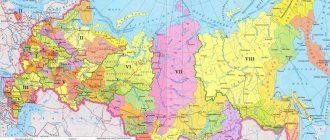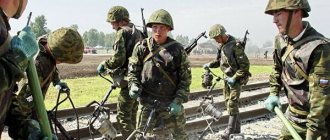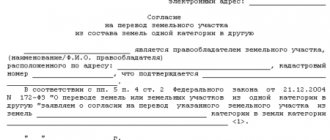A disabled citizen is a person who, due to a number of reasons, has temporarily or for an extended period lost the opportunity to work. Dependents are persons who are fully supported by someone. In addition, they can regularly receive assistance, which is considered the main source of their life and future existence. Disability must be confirmed by relevant medical certificates and documents.
How to confirm disability
For an old-age pension, proof of incapacity for work is the person reaching retirement age.
Confirmation of disability is carried out by a medical and social examination. To obtain a conclusion, a person should contact the Bureau of Medical and Social Expertise:
- at the place of residence;
- at the place of attachment to the medical institution.
If a personal appeal is not possible, an examination is carried out:
- at home;
- in a hospital at the patient’s place of stay;
- in absentia, with his consent or legal representative on the basis of the submitted documents.
Temporary disability implies the inability of a person to perform labor functions for a relatively short time. This fact is confirmed by the doctor of the medical and preventive institution by issuing a certificate of incapacity for work (sick leave). In accordance with the provisions of the Labor Code of the Russian Federation, the confirmed period of illness is subject to payment.
A legal state, such as the Russian Federation today, guarantees every disabled citizen financial support in old age, in case of disability, as well as in the event of difficult life circumstances, regardless of his social status, services to the fatherland and other factors.
If circumstances arise when a citizen loses the opportunity to work, or a child (full-time student under 23 years of age) loses loved ones who provided for him, he should immediately contact the territorial office of the Pension Fund of the Russian Federation with an application for a pension payment.
It is worth noting that payments for different categories of disabled citizens differ, and up-to-date information on the amount of payments on the day of application can be found in the branch of the Pension Fund of the region of residence.
For young citizens, the main recommendation is to find employment in organizations that pay “white” wages. Every person will one day become disabled. And the size of his pension will directly depend on contributions paid to the Pension Fund of the Russian Federation.
Questions and answers
1. What groups of disabled dependents exist?
The legislation focuses on two groups of dependents who are unable to work:
- the first - persons who are successors at the legislative level and included in the list of heirs of the second to seventh order.
- the second - persons belonging to the successors of the eighth order.
2. Who has the right to confirmation of disability?
- Minor citizens under the age of 16. At this age, working capacity begins, that is, the time when a citizen has the right to fully carry out work practice, but there are exceptions.
- students of general education institutes and institutions of primary vocational education, excluding adults.
- students of educational bodies of secondary and higher vocational education, conducting full-time education, until the age of 23 years.
- Citizens with disabilities of groups 1 and 2, which are established by a decision of the medical commission of a specially authorized department - a medical and social examination institution. Persons with group 3 disabilities have every chance of becoming unable to work due to the characteristics of the disease.
- individuals who have reached retirement age and are not working while receiving pension payments. This issue is quite controversial in theoretical research and law enforcement practice. Some scientists consider it necessary to recognize even pensioners who are working as disabled.
- In the legislation of the Russian Federation, disabled citizens are considered to be persons who do not have the ability to perform labor activities for various reasons, the list of which includes old age and health problems. Such citizens have the right to care from an able-bodied person who will receive financial payments during the care. Disabled citizens should not be confused with dependents who live at the expense of other persons, or who receive regular assistance from them, thanks to which they support their existence.
Payment and delivery of pensions
The legislation provides for the right of a pensioner to choose the organization that delivers the pension. You can receive it in 3 ways:
- At home (the organization chosen by the person brings funds to the pensioner’s place of residence);
- At the organization's cash desk;
- To a bank account.
At the request of the person, the pension can be received by the principal. If the power of attorney is issued for more than a year, then the authorized person has the right to receive payments during the entire period of its validity. At the same time, the trustee must confirm his registration at the place of receipt of the pension every year.
In practice, most often the delivery of pensions to your home is carried out by the post office at the place of registration of the person. You can also receive payment at the post office itself by applying in person. If it is impossible to apply in person, the pension can be issued by proxy.
Important! If a person is undergoing treatment in a medical institution, the power of attorney is certified by the head of the department.
The next common method of receipt is through a bank. Payment can be received at the cash desk or on a card. The pension is credited to the account on the day it is received from the branch at the place of residence of the Pension Fund of the Russian Federation. The Commercial Bank does not charge any commission for this service.
The territorial body of the Pension Fund of the Russian Federation contains information about organizations that have the right to deliver pensions to your home or issue them at the cash desk.
Inheritance of property by disabled dependents of the testator
Civil Code of the Russian Federation), have the right to an obligatory share in the inheritance - no less than half of the share that would be due to each of them if they inherited by law (clause 1 of Article 1149 of the Civil Code of the Russian Federation). The size of the share of the inheritance for a disabled dependent may be increased by the testator in his will.
From the above it follows that the heir - a disabled dependent - by law can be any person who does not have a family or marital relationship with the testator, but lives together with him. It should be added to the above that the literature suggests that recipients of alimony are also dependents and, therefore, have the right to inherit from their payers.
Children from 16 years of age are considered able to work
If on such leave, in the presence of parents (parent), there is an individual from among the persons determined by the Code of the Republic of Belarus on Marriage and Family, who is not a parent of the child and does not have a spouse, he is recognized as a dependent for one of the child’s parents; students over eighteen years of age receiving full-time general secondary, special, first vocational, first secondary specialized, first higher education - for their parents; minors over whom guardianship or trusteeship has been established - for the guardians or trustees of these minors.
According to the general rule set out in Article 21 of the Civil Code of the Russian Federation, adulthood in Russia begins at the age of 18. It is from this age that a person becomes fully capable and gains the opportunity to perform many actions that he previously did not have the right to do.
Payment amount
The state provides 2 types of pensions for pensioners: insurance (labor) and social.
A mandatory condition for insurance is more than 5 years of experience. The social pension is intended for persons whose work experience is less than 5 years.
It is worth noting that in cases where the amount of the accrued pension is less than the established minimum subsistence level provided for in the region of residence, the pensioner has the right to a federal or social supplement, which eliminates this difference.
Factors that determine the amount of payments:
- Insurance experience. This is the sum of all work periods. A mandatory condition is the deduction of contributions to the Pension Fund of the Russian Federation throughout the working life.
- Individual pension coefficient. It is calculated based on contributions to the Pension Fund of the Russian Federation and the duration of work.
- The type of pension provision chosen by the citizen in the Compulsory Pension Insurance system.
- Coefficients provided by the state.
In the event of the loss of one breadwinner, a monthly fixed payment is provided, which currently amounts to 2279 rubles 47 kopecks, and 4558 rubles 94 kopecks in the event of the loss of both parents for each child.
Inheritance by disabled dependents of the testator
What is noteworthy is that, according to paragraph 4 of the above article, the dependency of the testator’s minor children is initially assumed and does not require proof.
- At the same time, judicial practice does not exclude dependency if the dependent receives any other income other than the assistance of the breadwinner-testator (pension, alimony, benefits, etc.). In this case, the definition of the testator's assistance as the main income presupposes its relationship with the other income of the dependent.
- Dependency can arise for a completely different set of reasons, ranging from alimony obligations of children and parents, brothers and sisters, spouses, etc., and ending with the fulfillment of a moral duty in the actual absence of real legal obligations for maintenance. It should be remembered that disabled citizens who received from the testator lifelong maintenance with dependents under an annuity agreement (Art.
Attention
Thus, any reduction in the share due to such an heir is permissible only with the permission of the guardianship and trusteeship authority.
Conditions for inheritance by disabled dependents As already mentioned, inheritance by disabled dependents is not related to kinship, marriage and property in relation to the testator. These persons are called upon to inherit only if there are a set of conditions provided for by the provisions of Art.
About the concept of disability
There is a certain concept in the legislation, which was introduced back in Soviet times in 1966. This document explains that a disabled citizen is, first of all, a pensioner whose age has reached the required level. Such people receive cash benefits.
Also included in this category are those who have 1st, 2nd and 3rd disability groups. Of course, children who have not reached the age of majority (18 years) are automatically considered disabled. Officially, the “disabled” status is certified by a notary after the citizen presents a document: passport, pension certificate and SEC certificate.
Comments on Article 1148 of the Civil Code of the Russian Federation, judicial practice of application
In paragraph 31 of the resolution of the Plenum of the Supreme Court of the Russian Federation dated May 29, 2012 No. 9 “On judicial practice in inheritance cases,” the following explanations are given.
USEFUL INFORMATION: Representative on oral petition, Code of Civil Procedure of the Russian Federation
When determining inheritance rights in accordance with Articles 1148 and 1149 of the Civil Code of the Russian Federation, it is necessary to keep in mind the following:
Who is considered disabled?
Disabled people in these cases include:
- minors (clause 1 of Article 21 of the Civil Code of the Russian Federation);
- citizens who have reached the age that gives them the right to establish an old-age labor pension (clause 1 of Article 7 of the Federal Law of December 17, 2001 N 173-FZ “On Labor Pensions in the Russian Federation”), regardless of the assignment of an old-age pension to them. Persons who retain the right to early assignment of an old-age labor pension (Articles 27 and 28 of the said Federal Law) are not classified as disabled;
- citizens recognized in accordance with the established procedure as disabled people of groups I, II or III (regardless of the assignment of a disability pension to them);
Disability is determined as of the date of opening of the inheritance
The circumstances associated with a citizen’s incapacity for work are determined on the day the inheritance is opened. A citizen is considered disabled in cases where:
- the day of his coming of age coincides with the day of opening of the inheritance or is determined by a later calendar date;
- the day of his birth, which is associated with reaching the age that gives the right to establish an old-age labor pension, is determined by a date earlier than the day of opening of the inheritance;
- his disability was established from the date coinciding with the day of opening of the inheritance or preceding this day, indefinitely or for a period until the date coinciding with the day of opening of the inheritance, or until a later date (clauses 12 and 13 of the Rules for recognizing a person as a disabled person, approved by the Decree of the Government of the Russian Federation dated February 20, 2006 N 95 “On the procedure and conditions for recognizing a person as disabled”);
A dependent of the testator is a person supported by him and not necessarily a relative
A person who received from the deceased for a period of at least a year before his death - regardless of family relations - full maintenance or such systematic assistance that was for him a constant and main source of livelihood, regardless of whether he received own earnings, pensions, scholarships and other payments. When assessing the evidence presented in support of being a dependent, the ratio of the assistance provided by the testator and other income of the disabled person should be assessed.
A disabled citizen - a recipient of annuity under a lifelong maintenance agreement with a dependent, concluded with the testator - the annuity payer (Article 601 of the Civil Code of the Russian Federation), does not inherit by law as a dependent of the testator;
A disabled and dependent grandson of the testator inherits regardless of whether he or she lives together with the testator.
Disabled dependents of the testator from among the persons specified in paragraph 2 of Article 1142 of the Civil Code of the Russian Federation, inheriting by right of representation, who are not called to inherit as part of the corresponding queue (grandchildren of the testator and their descendants during the lifetime of their parents - heirs according to the law of the first priority), inherit on based on paragraph 1 of Article 6 and paragraph 1 of Article 1148 of the Civil Code of the Russian Federation, that is, regardless of cohabitation with the testator.
Living together with the testator for at least a year before his death is a condition for calling to inherit only the disabled dependents of the testator, named in paragraph 2 of Article 1148 of the Civil Code of the Russian Federation (from among the citizens who are not included in the circle of heirs specified in Articles 1142 - 1145 of the Civil Code of the Russian Federation);
When disabled dependents are heirs of the eighth stage
Independent inheritance by disabled dependents of the testator as heirs of the eighth order is carried out, in addition to cases where there are no other heirs by law, also in cases where none of the heirs of previous orders has the right to inherit, or all of them are excluded from inheritance (Article 1117 of the Civil Code of the Russian Federation), or are deprived inheritance (clause 1 of Article 1119 of the Civil Code of the Russian Federation), either none of them accepted the inheritance, or all of them refused the inheritance.
Example of a statement of claim
Statement of claim for recognition of property rights by inheritance (at the time of the death of the testator, the plaintiff was disabled due to old age and was his dependent, which, according to Article 1148 of the Civil Code of the Russian Federation, in the absence of other heirs, by law gives the right to the disabled dependent of the testator to inherit independently as an heir of the eighth stage ).
What benefits are available to pre-retirees in 2021?
In terms of land tax, pre-retirees will also receive benefits like pensioners. The benefit is that you can reduce the tax base by the cadastral value of 600 square meters of the area of your own land plot (in simple terms, this is 6 acres of land).
To give the most accurate description of the concept of “citizen of pre-retirement age” , let us turn to the legislation. The entire set of changes in the pension system was launched by one law, this is Federal Law No. 350-FZ of October 3, 2021 “On amendments to certain legislative acts of the Russian Federation on the assignment and payment of pensions.” There is 1 article dedicated to pre-retirement people:
Criteria for determining disability
The disability criteria are established by order of the Ministry of Labor of Russia dated December 17, 2015 N 1024n
The criterion for establishing disability for a person aged 18 years or older is a health disorder with a II or more severe degree of persistent impairment of the functions of the human body (ranging from 40 to 100 percent), caused by diseases, consequences of injuries or defects, leading to a limitation of 2 or 3 the degree of severity of one of the main categories of human life activity or 1st degree of severity of limitations of two or more categories of human life activity in their various combinations that determine the need for his social protection.
The criterion for establishing disability for a person under the age of 18 is a health disorder with a II or more severe degree of persistent impairment of the functions of the human body (ranging from 40 to 100 percent), caused by diseases, consequences of injuries or defects, leading to limitation of any category of human life activity and any of the three degrees of severity of limitations in each of the main categories of life activity that determine the need for social protection of the child.
Criteria for establishing disability groups
The criteria for establishing disability groups are applied after a citizen has been identified as disabled.
Once disability is established, a citizen acquires the right to benefits for disabled people.
The criterion for establishing the first group of disability is a person’s health impairment with the fourth degree of severity of persistent impairment of the functions of the human body (in the range from 90 to 100 percent), caused by diseases, consequences of injuries or defects.
The criterion for establishing the second group of disability is a person’s health impairment with the third degree of severity of persistent impairment of body functions (in the range from 70 to 80 percent), caused by diseases, consequences of injuries or defects.
USEFUL INFORMATION: How to challenge paternity and return child support
The criterion for establishing the third group of disability is a person’s health impairment with the second degree of severity of persistent impairment of body functions (in the range from 40 to 60 percent), caused by diseases, consequences of injuries or defects.
The category “disabled child” is established if the child has II, III or IV degrees of persistent impairment of body functions (ranging from 40 to 100 percent) caused by diseases, consequences of injuries and defects.
If a citizen is recognized as disabled, the following causes of disability are established:
- a) general illness;
- b) work injury;
- c) occupational disease;
- d) disability since childhood;
- e) disability since childhood due to injury (concussion, mutilation) associated with combat operations during the Great Patriotic War of 1941 - 1945;
- f) war trauma;
- g) the disease was acquired during military service;
- h) a radiation-related disease was acquired while performing military service duties (official duties) in connection with the disaster at the Chernobyl nuclear power plant;
- i) the disease is associated with the disaster at the Chernobyl nuclear power plant;
- j) a disease acquired during the performance of other military service duties (official duties) is associated with the disaster at the Chernobyl nuclear power plant;
- k) the disease is associated with an accident at the Mayak production association;
- l) an illness acquired during the performance of other military service duties (official duties) is associated with an accident at the Mayak production association;
- m) the disease is associated with the consequences of radiation exposure;
- o) a radiation-related disease was acquired during the performance of military service duties (official duties) in connection with direct participation in the actions of special risk units;
- o) illness (wound, concussion, injury) received by a person serving active military units of the Armed Forces of the USSR and the Armed Forces of the Russian Federation, located on the territories of other states during the period of hostilities in these states;
- p) other reasons.
Causes of disability
There are many situations in which loss of labor skills occurs. These include:
- an illness that led to persistent impairment of health, but this did not arise as a result of the negative influence of working conditions;
- an illness that was discovered as a result of performing professional duties (for example, harmful working conditions);
- injury sustained at home, but not at work;
- injury resulting in serious health problems: an emergency occurred at work.
The main labor guarantee that a citizen has the right to count on is the receipt of benefits.
Legal status of disabled dependents
"Dependent"
in Russian law means a specific person who constantly receives help from another person, including material, or is completely supported by him.
Maintenance of this kind is the main source of income for dependents, thanks to which they exist. is not considered dependent
.
Will disinfestation be the solution?
Because a disabled heir is an obligatory part in any case. And the state requires a mandatory part in this case. The obligatory part constitutes half of the actual heritage.
Is there a solution in which the disabled person also benefits from inheritance
Yes, there is a so-called Disability Credit. To do this you must follow some rules.
You must write a will. The will states that the disabled heir should receive slightly more than the obligatory portion. This can avoid the state requiring a mandatory part. It is necessary to use heirs with disabilities as so-called “previous heirs”. Worbeb must keep it for his Naherben. Only when the income is accrued can Sparrow use them freely. Income can be, for example, interest. If the heirloom dies, the entire heir goes to the heirs.
Legislation includes a wide range of people under the category of dependents - from parents and the elderly to children, that is, everyone who cannot earn their own living
, and is forced to feed at the expense of relatives or other people.
The concept of disability and a person classified as such
As such, the concept of “disability” does not exist in law. Considered to be incapacitated
are citizens who, due to age or health conditions, cannot perform physical work, take care of themselves, or, in a word, support themselves.
They live off their relatives or government benefits and payments and are called disabled dependents
.
The state cannot lay claim to this heritage. The legacy stays in the family. You must appoint an executor. It is best for the executor to be the trustee of the previous heir. This could be, for example, a family member or a person from the environment. It makes sense to name one or more alternative artists
This is important if one of the appointees fails. A legal guardian cannot become an executor
Reason: The legal guardian must supervise the executor. The executor's job is to manage the proceeds from the inheritance.
The contractor may, for example, leave the disabled person with less money or pay for a vacation. The amount of money should not be too high, because otherwise the government may still demand the money. It is best to write precise instructions for the performer. For example, a disabled person should receive gifts on his birthday. Or that walking benefits or other benefits must be paid.
- persons who have reached retirement age;
- disabled people from childhood and disabled people of groups I - III;
- minors.
Do not apply
provisions for disabled dependents on the spouse, parents or adoptive parents, natural and adopted children of the testator, since they are heirs, which gives them priority over other heirs.
The notary must authenticate this rule. If someone complains about a disability will, they have some legal certainty. Because a Disability Will is a bit confusing, you should seek the advice of an attorney. There is no absolute legal certainty. Case law may change. The federal court accepted the disability will with the above rules. The attorney should again consider the model presented here for the individual case.
Disabled citizens are... Protection of disabled citizens
We often come across the expression “disabled.” Who exactly belongs to this category of citizens? Do we know all our rights? After all, the state in which we live must provide its citizens not only with rights, but also protect their interests. There are many questions, and even more answers.
Who is considered disabled?
Disabled citizens are those people who do not have the ability to work for a long time, sometimes even since childhood. Usually such people fully support their family. They are called dependents.
In other words, these are those persons who live on the full financial support of their family members or other persons. Citizens caring for disabled citizens regularly receive sponsorship from the state to provide for them.
Thanks to this help they live.
Categories of disabled people
The category of disabled citizens includes the following persons:
- Pensioners by age (women - 55 years old, men - 60 years old, the retirement age has been reduced by 5 years in certain regions of the Far North). According to the Federal Law “On State Pension Provision in the Russian Federation,” such persons receive a pension from the state and do not work.
- Disabled people of groups 1 and 2 (disabled people of group 3 are recognized as disabled depending on the complexity of the disease).
- Crippled children.
- Minor citizens who have not reached 16 years of age.
- Students who study full-time at an educational institution. These include colleges, technical schools, institutes, universities, and academies. It should be noted that educational institutions located outside the Russian Federation are also considered. However, if the learning process took place under an integration agreement, then until the completion of their studies such persons are disabled (up to 23 years of age).
- Persons who are deprived of one or both guardians.
- Children whose single mothers have passed away.
- Representatives of small northern ethnic groups (women aged 50, men aged 60-65) who do not have the right to a pension.
It should be noted that the fact of disability and the period of distribution are indicated in a special certificate. It is issued in every federal institution of medical and social examination.
Changes in disability status
During the Soviet Union, a different law was in force. According to it, dependents were included in the first line of heirs. Quite recently, the authorities of the Russian Federation adopted a new law, which slightly affected the inheritance rights of dependents.
Article 1148 of the Civil Code of the Russian Federation contains the following provisions:
- Heirs are considered to be those citizens of the Russian Federation who were not previously included in the circle of persons (specified in 1142-1145 of the Civil Code).
- On the day of opening of the inheritance, persons must be recognized as officially disabled, and have this status for at least 1 year until the day of death of the testator. If there are other relatives, everyone is in equal conditions.
About the concept of disability
There is a certain concept in the legislation, which was introduced back in Soviet times in 1966. This document explains that a disabled citizen is, first of all, a pensioner whose age has reached the required level. Such people receive cash benefits.
Also included in this category are those who have 1st, 2nd and 3rd disability groups. Of course, children who have not reached the age of majority (18 years) are automatically considered disabled. Officially, the “disabled” status is certified by a notary after the citizen presents a document: passport, pension certificate and SEC certificate.
Disabled citizens are, of course, those who have rights. Dependents who are not in the 1st line of inheritance (children, spouses, parents) have every right to claim inheritance by law. Basic conditions for entering into inheritance in this case:
- If the disabled dependent was fully supported by the testator for at least 1 year until the day of death. Living together or separately is not taken into account.
- If the dependent does not belong to the line of heirs, then the inheritance can only be received if he lived together with the deceased for at least 1 year.
- If the deceased has no relatives, then the disabled dependent is automatically classified as an 8th stage heir.
When preparing documents to receive property, disabled citizens encounter difficulties, because the Civil Code of the Russian Federation does not clearly stipulate the conditions for the disabled. That is why many prove their status in court.
Protection of disabled citizens and care for them
The legislation states in black and white who must care for a non-working person and for what period of time. Children are looked after by their parents or guardians under 18 years of age. In case of receiving education abroad in the Russian Federation, the status “disabled for work” is automatically extended to 23 years.
Direct care for disabled citizens falls on the shoulders of working relatives: parents (or one of them), children or family members. In the absence of relatives, a disabled citizen is fully provided for by the state.
Thus, disabled citizens are entitled to a pension, which is calculated on an individual basis. Disabled people of all groups need state care. Many are supported, receiving monthly payments and benefits.
Payments to disabled citizens come from the state budget.
How are payments determined?
Disabled citizens are those who, by law, are entitled to receive assistance from the state. So, in order to receive the appropriate payments, you need to collect the following package of documents:
- A statement in which a disabled citizen agrees to care for him. If a person is declared incompetent, the application must be submitted through a representative. In this case, it is additionally necessary to provide a document on guardianship.
- Application from a citizen who will care for a disabled person.
- A certificate stating that the person still does not receive a pension. It must be taken to the Pension Fund of the Russian Federation (at your place of residence).
- A certificate confirming that the disabled person does not receive any unemployment benefits.
- Passport.
- Work record of the citizen who will provide care.
- Certificate of full-time study of a person who is currently caring for a disabled person.
Benefits can be paid for previous years, but not more than 3 years. Those people who have not previously applied to special bodies to assign benefits are entitled to claim this amount of payments. In the event of the death of a disabled person, the pension and other benefits are received by the citizen who cared for him.
Who else can receive benefits?
In addition, a non-working citizen can receive a payment if he has the following security:
- a disabled child under 18 years of age;
- a citizen who has reached the age of 80;
- an elderly person who, due to health reasons, cannot take care of himself independently.
In conclusion, I would like to note that disabled citizens are those who cannot work due to old age or health problems.
It is these people who have the right to claim care for them by an able-bodied person who, by law, is entitled to receive appropriate payments. However, the disabled should not be confused with dependents. The latter live off the provision of others.
Find out more about your rights and the benefits you are entitled to from the state. If you don't take care of yourself, no one will.
Source: https://FB.ru/article/370877/netrudosposobnyie-grajdane-eto-zaschita-netrudosposobnyih-grajdan
Disabled and entitled to receive payments are recognized
- Men 60 years old (and older), women 55 years old (and older). The law regulates certain types of activities where retirement is provided earlier than the standard rate.
- Citizens from indigenous peoples of the North, men 55 years of age and older, and women over 50 years of age.
- Disabled people.
- Full-time students under 23 years of age who have lost one or both parents, or children of a deceased single mother.
- Capable citizens who, due to a short illness, are temporarily unable to perform labor functions.
Disability is a permanent or long-term inability of a person to work fully or partially.
Disability is the inability of the insured person to perform labor functions due to old age or disability.
USEFUL INFORMATION: I stopped loving my wife. How to save a marriage or better let it go
The state provides the above-mentioned persons with the right to receive a monthly payment that compensates for wages and other payments.
Disability by age in the Russian Federation
Disability is a legal concept that does not describe the physical ability to work. The status of disability does not prohibit work; for example, there are cases when disabled people of group 1 work.
The following are considered disabled by age:
- minors under 18 years of age. But if children continue their full-time education in educational institutions, the disability status continues until the age of 23;
- persons who have reached retirement age.
Inheritance by disabled dependents of the testator. eighth stage
The legislator divides the dependents defined in this article into 2 categories. For your information, the first category includes dependents who are part of the second and all subsequent lines of inheritance by law, but are not called upon to inherit, due to compliance with the principle of priority (clause.
The second category includes dependents who are not heirs by law, but are fully supported by the testator and live with him for a year until the day of his death (clause 2 of Article 1148 of the Civil Code). If the above persons can be simultaneously called to inherit in order of priority and on the basis of dependency, then they receive the inheritance as representatives of the corresponding order or by right of representation.
In accordance with current legislation
In accordance with current legislation, heirs are citizens of the Russian Federation who are not included in the circle of persons listed in Articles 1142-1145 of the Civil Code. There is also an exception, so it is necessary to pay attention to the fact that at the time of opening the inheritance, the disability must be officially recognized, and it must be in this status for at least a year before the death of the testator. These persons could live with him or be dependent on him. If the testator has other relatives, you need to know that they are in the same conditions.
Categories of disabled dependents
The testator's dependents are entitled to a portion of the funds from the inheritance share. People with this status are considered:
- disabled children who have an incurable disease and belong to disability group 1 or 2;
- minor children who may be under the guardianship of special authorities;
- those people who receive an old-age pension.
It is worth studying in more detail the question of whether every pensioner can receive a share of wealth, and in what cases it is legal. A pensioner can receive a share of the inherited property if a citizen leaves work due to length of service or for health reasons. When retirement occurs with benefits and ahead of schedule, the pensioner, by law, will not be able to receive a share if he is not indicated in the will. Also, the testator's dependents can count on additional assistance.
Caring for citizens who have lost their ability to work
Russian legislation has adopted Rules for the execution of compensating regular payments to non-working persons who are part of the working population and look after disabled people. Expenses related to compensation payments to citizens caring for disabled people are financed from federal budget resources that are annually allocated to achieve this goal. The payment criteria are determined in accordance with the Decree of the Head of the Russian Federation dated December 26, 2006 “On compensation payments...” No. 1455:
- compensating monthly funds for persons living on the territory of the Russian Federation, caring for residents with the 1st group of disabilities, minor disabled children and elderly citizens who need outside care in accordance with the verdict of a medical organization or who have reached the age of eighty, are equal to five hundred rubles;
- compensatory payments are assigned to the pension, which is allocated to the disabled population when caring for them in the order established for the payment of these provisions;
- Compensatory funds are assigned to persons caring for a person who has lost their ability to work, regardless of family ties, as well as cohabitation;
- compensatory payments are determined and carried out by the department that deals with the distribution and issuance of pensions.
Now we know who this is - a disabled citizen.
Features of inheritance rights of dependents
Inheritance rights of disabled dependents This category of heirs is among the most vulnerable successors, which is why the scope of their inheritance rights is quite wide. So, according to paragraphs 1, 2 of Art. 1148 of the Civil Code, both categories of disabled dependents, acting as legal successors of the deceased breadwinner, enjoy the same legal capacity - representatives of both categories are called to inherit on equal rights along with the heirs of the called-up line by law and inherit with them in equal shares
Important Moreover, disabled dependents can claim a share in the inheritance even if there is a will
Inheritance procedure for disabled dependents
The procedure for recognizing disabled persons who are dependent on the testator as heirs, determined by law, is carried out in several stages.
You need to do the following:
- the fact of disability is established;
- The fact of the presence of dependency, as well as its timing, is determined. In certain situations, this can be documented (alimony agreement, etc.);
- if the legal successor is in category 2, it is necessary to confirm the fact of cohabitation;
- the specified category of heirs receives the same rights as the legal successors who were called to inherit;
- if the testator does not have heirs of the first to seventh order, the disabled inherit the left inheritance as an independent category - the eighth order;
- If there is a valid will, then the legal successors are entitled to a mandatory share.
All issues are regulated on the basis of the Civil Code, and the due portion of the inheritance is calculated according to special rules.
Confirmation of membership in this group of legal successors is possible based on the fact of pension provision paid due to the death of the breadwinner.
The main reasons for denying inheritance to disabled dependents
Legislative acts provide for certain situations when, when the possibility of inheritance arises, dependents will be denied the right to take advantage of their status.
The main reasons include the following:
- physical the person is not in any of the officially established order;
- disabled heirs did not live with the deceased testator for a certain minimum period - one year;
- a person who is in the category of unworthy heirs.
Controversial conditions will arise if a possible successor is a contender for two methods of inheriting property at once. A similar situation can be used as a reason for a lawyer to transfer the case to a judicial authority.
You can also go to court in cases where there is no agreement between direct successors and dependents. The resolution of such disputes is based on where the testator's dependents are registered. This requirement is not a reason to consider the application.
Thus, dependents who make up the eighth line among the heirs have the same rights to inheritance as other candidates. In this case, the relationship with the testator does not matter.
Conditions for inheritance
Disabled dependents who are not first-priority heirs have the right to claim an inheritance by law.
But they must be maintained by the testator for at least one year until the day of his death. In this case, the condition of joint or separate residence is not taken into account. Disabled dependents who are not in the line of heirs can receive an inheritance only if they have lived with the deceased for at least one year. But if the relationship ended a year before the opening of the inheritance, then by law the former dependent has no right to claim any property.
When the testator does not have relatives and other heirs who are indicated in the lists of the law, then disabled dependents are classified as heirs of the eighth stage . Sometimes, during registration, serious difficulties may arise in obtaining property, because the Civil Code of the Russian Federation does not clearly indicate disabled dependents.
It is for this reason that a person has to prove his inability to work according to judicial procedures. Disability is the inability to engage in work activity or a limitation that is associated with the presence of a person’s physical disability. For this reason, a citizen cannot provide himself with money and receive income.
A person loses his ability to work due to various life circumstances and reasons. All of them must be indicated during the court hearing. A person's disability is considered the most controversial legal issue during legal proceedings.
The Federal Code does not even establish approximate criteria that provide every opportunity to recognize a person as disabled.
Who is entitled to a mandatory share of the inheritance in a will?
If there are adoptive parents to whom these rights were transferred, they will also receive the inheritance.
- Similarly, those citizens who evaded the obligations imposed on them by law are not able to receive a compulsory share in inheritance.
- As a general rule, it can be summed up that the right to a compulsory share in the inheritance is granted to pensioners who have reached 60 years of age, who are related in the 1st order and who have fully complied with all laws in relation to their “departed” loved one, as well as pensioners who are not old enough: disabled people 1, Groups 2 and 3 and children who have not reached working age (pension according to the SPC).
Do pensioners have the right to a compulsory share in the inheritance?
The procedure for determining the share What share of the inheritance is entitled to a pensioner after the death of a relative? If the pensioner is the spouse or parent of a deceased citizen, by law he will be included first in the list of heirs. This means that in the absence of a will, all assets and funds of the deceased will be distributed among the first priority heirs in equal proportions.
For example, if 4 people (a spouse, two retired parents and one child) declared their rights to inheritance, each of them will receive ¼ of the property. When inheriting by law, the fact of retirement age does not provide advantages for increasing the size of the share.
Bodies competent to establish disability
Recognition of a person as disabled is carried out by federal state institutions of medical and social examination:
- Federal Bureau of Medical and Social Expertise;
- main bureaus of medical and social examination;
- bureaus of medical and social examination in cities and regions that are branches of the main bureaus;
Recognition of a citizen as disabled is carried out during a medical and social examination based on a comprehensive assessment of the state of the citizen’s body based on an analysis of his clinical, functional, social, professional, labor and psychological data using classifications and criteria approved by the Ministry of Labor and Social Protection of the Russian Federation.
The main types of persistent disorders of the human body include:
- disturbances of mental functions (consciousness, orientation, intelligence, personality characteristics, volitional and incentive functions, attention, memory, psychomotor functions, emotions, perception, thinking, high-level cognitive functions, mental functions of speech, sequential complex movements);
- disorders of language and speech functions (oral (rhinolalia, dysarthria, stuttering, alalia, aphasia); written (dysgraphia, dyslexia), verbal and non-verbal speech; voice disorder);
- disturbances of sensory functions (vision; hearing; smell; touch; tactile, pain, temperature, vibration and other types of sensitivity; vestibular function; pain);
- disorders of neuromuscular, skeletal and movement-related (static-dynamic) functions (movements of the head, torso, limbs, including bones, joints, muscles; statics, coordination of movements);
- dysfunctions of the cardiovascular system, respiratory system, digestive, endocrine and metabolic systems, blood and immune systems, urinary function, skin function and related systems;
- disorders caused by physical external deformity (deformations of the face, head, torso, limbs, leading to external deformity; abnormal openings of the digestive, urinary, respiratory tracts; violation of body size).









